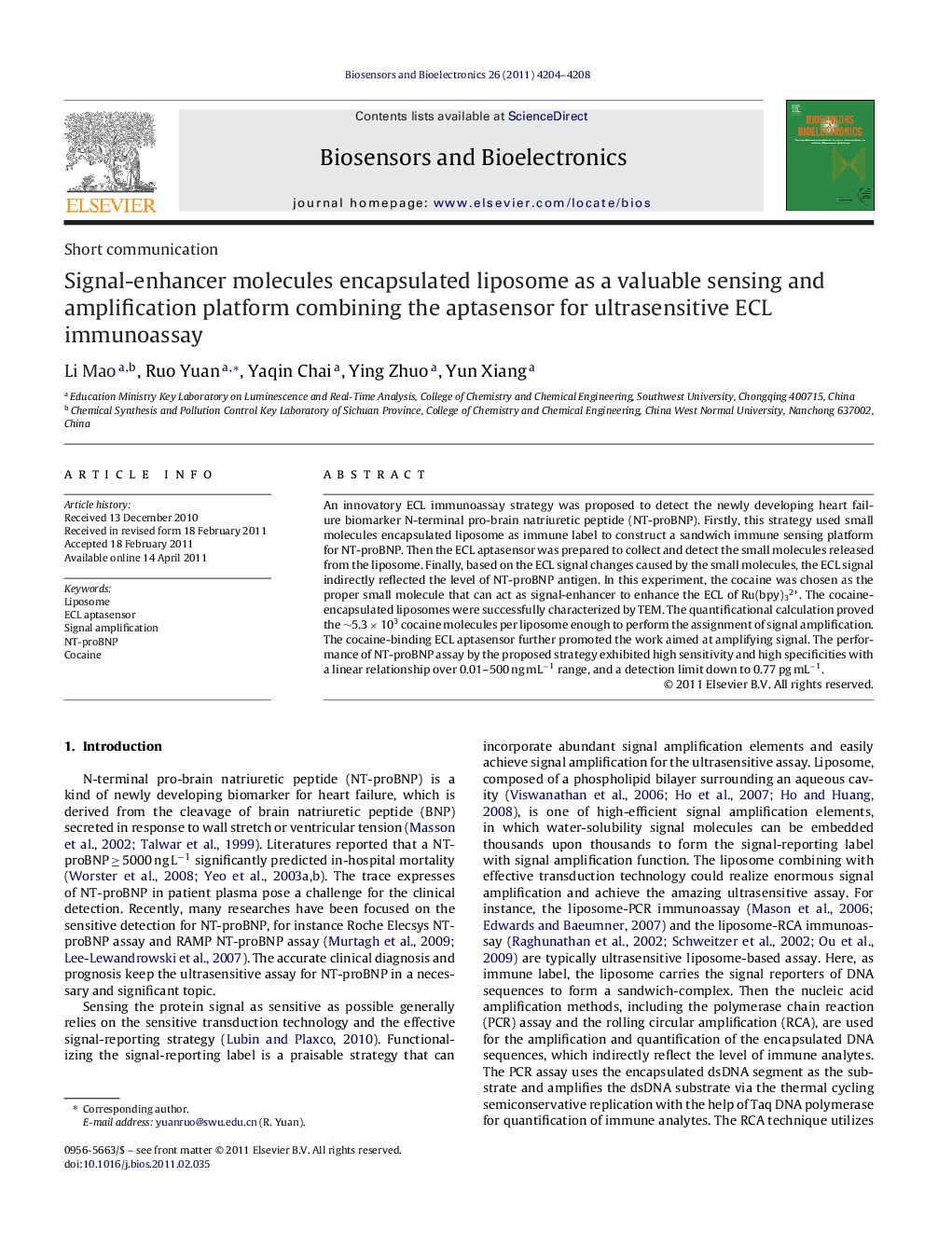| Article ID | Journal | Published Year | Pages | File Type |
|---|---|---|---|---|
| 868249 | Biosensors and Bioelectronics | 2011 | 5 Pages |
An innovatory ECL immunoassay strategy was proposed to detect the newly developing heart failure biomarker N-terminal pro-brain natriuretic peptide (NT-proBNP). Firstly, this strategy used small molecules encapsulated liposome as immune label to construct a sandwich immune sensing platform for NT-proBNP. Then the ECL aptasensor was prepared to collect and detect the small molecules released from the liposome. Finally, based on the ECL signal changes caused by the small molecules, the ECL signal indirectly reflected the level of NT-proBNP antigen. In this experiment, the cocaine was chosen as the proper small molecule that can act as signal-enhancer to enhance the ECL of Ru(bpy)32+. The cocaine-encapsulated liposomes were successfully characterized by TEM. The quantificational calculation proved the ∼5.3 × 103 cocaine molecules per liposome enough to perform the assignment of signal amplification. The cocaine-binding ECL aptasensor further promoted the work aimed at amplifying signal. The performance of NT-proBNP assay by the proposed strategy exhibited high sensitivity and high specificities with a linear relationship over 0.01–500 ng mL−1 range, and a detection limit down to 0.77 pg mL−1.
